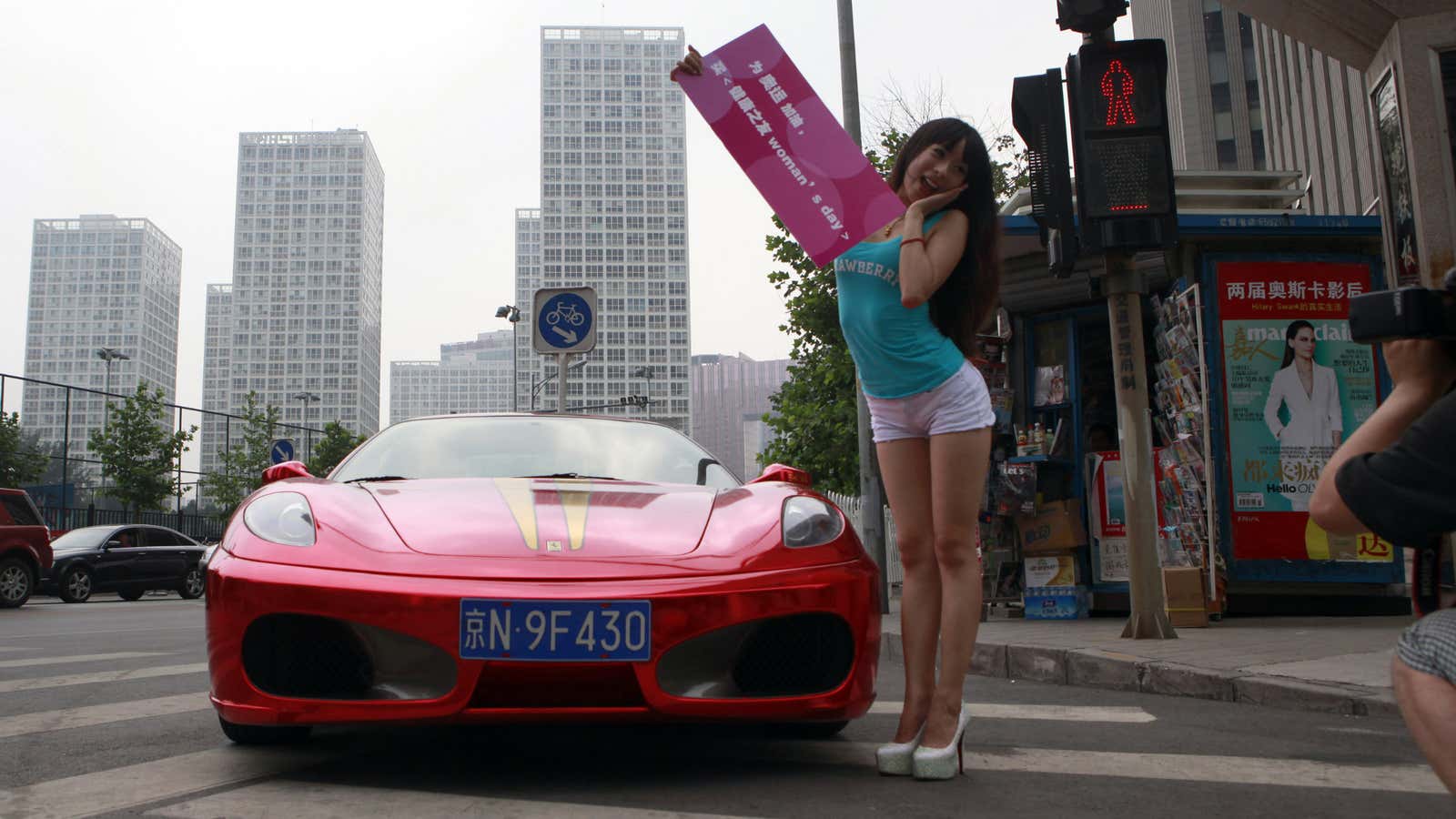There’s a good reason why wealthy Chinese luxury car buyers are suspicious that they’re paying more than their counterparts in Europe or the United States: they absolutely are, not to penalize China but because that’s what the market will bear.
The world’s biggest automakers set prices country-by-country based on a calculation designed to maximize sales and profit, analysts and manufacturers said. China’s luxury car buyers may be uniquely tolerant of higher prices because there’s no homegrown luxury car brands to compete.
“BMW models are priced not only according to production, R&D and other hard costs, but also the positioning in the respective segment and the competition in the individual local market,” said Linda Croissant, a spokeswoman for world’s biggest luxury automaker.
Mercedes Benz and Audi said this week their prices in China are comparable with prices in other markets, after allowing for import duties, taxes and the Chinese penchant for fully-equipped cars. That claim is refuted by a Bernstein Research report published this year, which showed that after stripping out taxes and other differences, buyers in China pay over a third more for some BMW, Audi and Mercedes Benz models.
Rather than setting one universal price for all car models, and then adjusting just for taxes, transportation and import fees, a large portion of a luxury car’s price is “arbitrary,” said Johnny Lieberman, senior features editor at Motor Trend. Car makers set high prices—sometimes double or triple the cost in another country—for the simple reason that people willingly pay them, and the higher the price the more prestigious the car.
The International Business Times looked closely at respective prices in China and the US this week:
A Ferrari 458 Italia costs between $632,789 and $723,923 in China. In the U.S., this super-luxury, high-performance Italian muscle machine will set you back only about $230,000. The BMW X5 luxury crossover SUV costs as much as $330,000 in China; in the U.S. it runs up to about $103,000.
What’s more, any move by luxury car makers to lower prices now could have the unintended side effect of hurting the resale value of cars already on the market. “BMW is committed to a stable pricing strategy to keep the customer’s confidence in the brand and also protect the residual value of the products,” said BMW’s Croissant.
Chinese buyers may be griping, but it could be worse—they could be in Australia. A Porsche 911 costs three times as much in Australia as it does in the United States, the Sydney Morning Herald reported in 2011. While some of that price is due to a steep 33% luxury car tax, auto experts say manufacturers are charging what the market there will bear as well.
This week’s report by China’s state-owned Xinhua news agency on the price disparity for luxury cars was seen as a warning shot by Chinese authorities to luxury carmakers to equalize prices or face an investigation into pricing, like the ones Beijing has recently undertaken by the infant formula and pharmaceutical industries. But perhaps the Chinese government would find it more productive just to educate luxury car buyers—many of whom are within its own ranks—about what a bad deal they’re getting.
